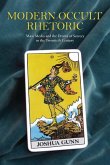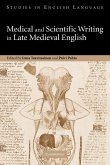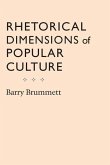Written using critical theory, especially by Walter Benjamin, Blanchot and Derrida, Allegory and the Work of Melancholy: The Late Medieval and Shakespeare reads medieval and early modern texts, exploring allegory within texts, allegorical readings of texts, and melancholy in texts. Authors studied are Langland and Chaucer, Hoccleve, on his madness, Lydgate and Henryson. Shakespeare's first tetralogy, the three parts of Henry VI and Richard III conclude this investigation of death, mourning, madness and of complaint. Benjamin's writings on allegory inspire this linking, which also considers Dürer, Baldung and Holbein and the dance of the dead motifs. The study sees subjectivity created as obsessional, paranoid, and links melancholia, madness and allegorical creation, where parts of the subject are split off from each other, and speak as wholes. Allegory and melancholy are two modes - a state of writing and a state of being - where the subject fragments or disappears. These texts are aware of the power of death within writing, which makes them, fascinating. The book will appeal to readers of literature from the medieval to the Baroque, and to those interested in critical theory, and histories of visual culture.








